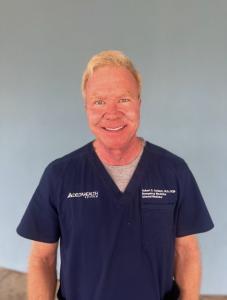Dr. Robert Corkern’s Insights on Emergency Medicine vs. Internal Medicine
Dr. Robert Corkern’s Insights on Emergency Medicine vs. Internal Medicine
Blog Article

When it comes to healthcare, many individuals usually confuse emergency medicine with internal medicine. Both are vital limbs of medicine, but they offer completely different functions in individual care. Dr Robert Corkern Mississippi, a famous medical specialist, describes the important thing variations between both of these specialties, shedding light on their unique stresses and how each contributes to patient health. Understanding the difference between crisis medicine and central medication will help people better navigate their healthcare wants and make educated decisions.
The Focus of Disaster Medicine
Emergency medication is made to provide quick, intense look after individuals facing urgent or deadly conditions. Emergency physicians function in hospitals' crisis sections (EDs), wherever they're often the first position of contact for persons experiencing severe incidents, strokes, heart episodes, or other medical emergencies. Dr. Corkern highlights that crisis medicine is about stabilization and rapid decision-making. Crisis physicians are qualified to take care of a wide range of medical conditions, usually with no reveal medical record of the individual, and should produce quick judgments centered on limited information.
The principal goal of disaster medicine is to prevent more hurt, secure the individual, and start the correct interventions. From injury treatment to handling heart problems or strokes, emergency physicians are experts in managing acute indicators and giving life-saving remedies in high-pressure environments.
The Position of Central Medicine
In contrast, internal medicine focuses on detecting and controlling chronic conditions and problems that influence people, such as for instance diabetes, hypertension, and center disease. Central medicine specialists, or internists, work with people around a lengthy time, giving detailed care and prevention strategies. Dr. Corkern explains that inner medication is generally focused on the whole-body administration of non-emergency medical issues. Internists often offer as main treatment medical practioners, handling schedule check-ups, handling continuous therapies, and corresponding take care of people with complicated, long-term health issues.
While emergency physicians handle immediate problems, internists have a more holistic and long-term way of individual health. They frequently work directly with specialists in places like cardiology, pulmonology, and nephrology to control serious situations and make certain that individuals receive coordinated care for numerous wellness concerns.
Education and Way of Care
Dr. Corkern features the variations in the training required for equally fields. Crisis medicine needs physicians to be ready for a broad spectrum of conditions that could need rapid, life-saving interventions. Crisis health practitioners are qualified to handle trauma, critical condition, and intense exacerbations of persistent conditions. This teaching requires huge focus on acute attention and sophisticated life-saving techniques, usually in high-stress environments.
On the other give, internal medicine physicians undergo intensive education in the elimination, examination, and treatment of persistent conditions. They concentrate on giving long-term care, often managing a patient's medical history and managing with other specialists. The internist's approach is patient-centered, with an increased exposure of long-term health maintenance and condition prevention.
When to Seek Disaster Medication or Inner Medicine
Knowing when to find crisis medication versus inner medicine can make all of the difference in the rate and type of treatment someone receives. If you're experiencing a medical emergency, such as extreme chest pain, trouble breathing, or unexpected loss in mind, the emergency room is the right spot to go. Nevertheless, for continuing health problems, serious disease management, or general health preservation, an interior medication specialist is normally the best point of contact.
Realization:
Both crisis medicine and inner medication enjoy crucial roles in patient care, but their approaches, emphasis parts, and education differ significantly. Dr Robert Corkern's explanation gives understanding on what these specialties purpose and when each is many relevant. By understanding the distinctions, patients can better steer their healthcare wants and ensure they're seeking the proper type of treatment at the proper time. Whether experiencing an emergency or controlling a serious situation, both specialists are built-in in maintaining and increasing health.
Report this page